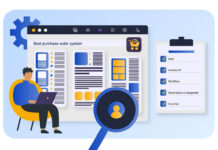The approach toward education has undergone quite the shift in recent years, largely fueled by the rise of online learning. This digital revolution in education has redefined the way knowledge is imparted, as well as those who can access it. No longer confined to traditional classrooms, learning now knows no physical and geographical boundaries, bringing quality education to the fingertips of millions worldwide. From interactive courses to degree programs, online learning platforms have made education more inclusive, accessible, and aligned with the needs of today’s fast-paced world.
1. Accessibility to Quality Education
One of the most significant impacts of online learning is the accessibility of education. It has dismantled geographic and socio-economic barriers, enabling people from remote or underserved areas to access quality education. Online platforms have opened doors for learners who previously had limited opportunities due to location, financial constraints, or other personal circumstances, such as disabilities. This shift has widened the scope of who can learn and what can be learned, offering a range of courses that cater to diverse interests and professional requirements.
2. Global Education Opportunities
Online learning has erased global boundaries in education. This global accessibility has broadened perspectives, allowing students to engage with international curriculums, faculties, and peers. Platforms like Nexford University exemplify how learners can now pursue educational programs from institutions across the world, without ever leaving their home country. It offers a unique opportunity to gain a global outlook, understand diverse cultures, and prepare for an increasingly interconnected world. Nexford University offers a wide range of programs. You can visit their website here https://www.nexford.edu.
3. Flexibility and Convenience
The flexibility and convenience offered by online learning are unparalleled. It allows individuals to learn at their own pace and on their own schedule, making it an ideal choice for working professionals, parents, or those with other life commitments. This flexibility extends to how one can access learning materials – be it through a computer, tablet, or smartphone – facilitating education on-the-go. Such adaptability has made learning more aligned with individual lifestyles and has opened up avenues for continuous education.
4. Personalized Learning Experiences
Online education is not a one-size-fits-all approach. Many platforms now use adaptive learning technologies to provide personalized educational experiences. These technologies cater to individual learning speeds, styles, and preferences, offering customized content and learning paths. This personalization ensures that learners are not just passive recipients of information but are actively engaged in a learning process that resonates with their unique needs and goals.
5. Cost-Effectiveness
Another significant advantage of online learning is its cost-effectiveness. Generally, online courses and programs come at a lower cost than traditional on-campus offerings. Additionally, they eliminate expenses such as commuting, housing, or relocation costs associated with attending a physical institution. This affordability has made higher education and professional development courses more accessible to a wider audience, breaking down financial barriers that once hindered the pursuit of further education.
6. A Wide Range of Courses and Specializations
The online learning landscape is rich with a diverse array of courses and specializations, spanning numerous fields and interests. From traditional academic subjects to cutting-edge technological fields, learners have the luxury of choice like never before. This diversity caters to a wide range of academic and professional interests and empowers learners to explore niche areas they are passionate about. Online platforms are continuously updating and expanding their course offerings, ensuring that learners have access to the latest knowledge and skill sets demanded by the evolving job market.
7. Development of Digital Literacy
A significant yet often overlooked advantage of online learning is the development of digital literacy skills among learners. Navigating online platforms, utilizing digital tools for learning, and engaging in virtual collaborations are all integral parts of the online education experience. These skills are increasingly crucial in a digital-first world, where proficiency in technology is essential across professions. Online learners, therefore, not only gain subject-specific knowledge but also build a strong foundation in digital literacy, which is a valuable asset in both academic and professional settings.
8. Collaboration and Networking Opportunities
Contrary to the misconception that online learning is an isolating experience, many online courses are designed to foster collaboration and networking. Virtual classrooms can connect students from around the globe, allowing for the exchange of ideas across different cultures and perspectives. Group projects, discussion forums, and peer review systems are common features of online courses, facilitating interaction and teamwork. This collaborative environment not only enhances the learning experience but also helps in building a global network of peers and professionals, which can be invaluable in one’s career.
9. Immediate Application of Skills
Online learning is often geared towards providing practical, applicable knowledge and skills. Many courses are designed with a focus on current industry practices and real-world applications, allowing learners to immediately apply what they learn in their professional lives. This immediate applicability is particularly beneficial for professionals seeking to enhance their skills or pivot to new roles, as they can implement new knowledge and techniques directly into their work, thereby enhancing their productivity and effectiveness.
10. Continuous Learning and Upskilling
In an era where lifelong learning is becoming a necessity, online platforms offer the perfect avenue for continuous learning and upskilling. The ease of access and flexible nature of online learning allow individuals to continually enhance their skills and knowledge, keeping pace with the rapid changes in their industries. From short courses and certifications to full degree programs, the opportunities for professional development are endless, helping individuals stay relevant and competitive in their careers.
The transformation brought about by online learning in the educational sector is profound and far-reaching. It has redefined accessibility, broken down barriers, and offered unparalleled flexibility and variety in learning. Whether it’s through fostering global connections, offering practical skill application, or enabling lifelong learning, online platforms have unequivocally elevated the educational experience. Accepting this shift in education allows us to keep up with the times and seize the immense opportunities it presents for personal and professional growth. As education continues to evolve, online learning will undoubtedly play a pivotal role in shaping the future of learning and development.





































